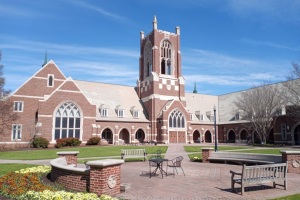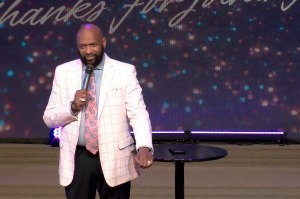Human Dignity and the Colson Task Force Recommendations

It's pretty cool when Congress names a special task force after you. It's even cooler when that task force makes recommendations that advance the cause of justice.
In 2014, in an all-too-rare case of bipartisan cooperation, Congress created the Charles Colson Task Force on Federal Corrections to tackle what many have called a crisis in the federal prison system.
Why they named it after Chuck was pretty clear. In the words of the Task Force: "Chuck Colson, who served time in federal prison and upon release founded the world's largest prison ministry, was a vigorous advocate on behalf of the incarcerated at a time when criminal justice reform had virtually no support on either side of the aisle. We salute his leadership and we are grateful for the chance to move the cause forward with our efforts."
Those efforts come at a critical time. According to the Task Force, "About 40 percent of those who leave federal prison are re-arrested or have their supervision revoked within three years. And inside federal prisons . . . overcrowding [is] a particular challenge . . . [T]he system operates at 20 percent above rated capacity. Such overcrowding presents serious challenges … jeopardizing the safety of both correctional officers and those they oversee."
Well, I'm happy to report that the Colson Task Force has just released a series of recommendations to Congress to combat the federal corrections crisis. Many of the recommendations are designed to increase transparency and cooperation among government agencies and to enhance public and correctional safety.
But at the heart of the recommendations is the Task Force's conviction that limited federal prison space should be reserved for those who commit only the most serious federal crimes and that prisons should provide a constructive culture that is safe and rehabilitative.
To do that, mandatory minimum sentences need to be revisited and judges need more discretion in sentencing. The government also needs to promote alternatives to prison, such as community service, restitution, and intensive probation programs, especially for those convicted of non-dangerous offenses. Finally, for those who must be incarcerated, the Task Force recommends incentivizing participation in rehabilitative programs. These, by the way, are recommendations that Chuck and Prison Fellowship have advocated for years.
The Task Force cited the not-untypical case of Donald Taylor, a 1984 high school graduate who joined the Army to make "serving his country a lifelong career." But after Taylor was "struck by a motorist near Fort Rucker, Alabama," he left the service. "Haunted by injuries and the collapse of his dream, he returned home, fell in with the wrong crowd, and was convicted of selling powder cocaine in 1994."
Although his crime was nonviolent, Taylor received a mandatory minimum sentence of 20 years "since he had a previous state-level conviction for selling less than a gram of powder cocaine."
The Task Force's recommendations would go a long way to reserve prison space only for those who pose a threat to public safety, and to make sure that men and women like Taylor repay their debt to society outside of prison walls, where they're less likely to return to crime.
Task Force member and Prison Fellowship Vice-President Craig DeRoche praised the recommendations for recognizing that those who have served time "are capable of being transformed and making significant contributions in their communities."
Chuck Colson's son, Chris Colson, said, "Our father made the absolute most of his own second chance, in great part by passionately advocating for those who have no voice. We are grateful for the exposure the task force has brought to his legacy, to Prison Fellowship's core belief in the God-given dignity of every person, and to the mission of restoring those affected by crime and incarceration."
For more on the Colson Task Force and Prison Fellowship's advocacy for biblically based justice reforms, please visit PrisonFellowship.org.
Originally posted at Breakpoint.





























